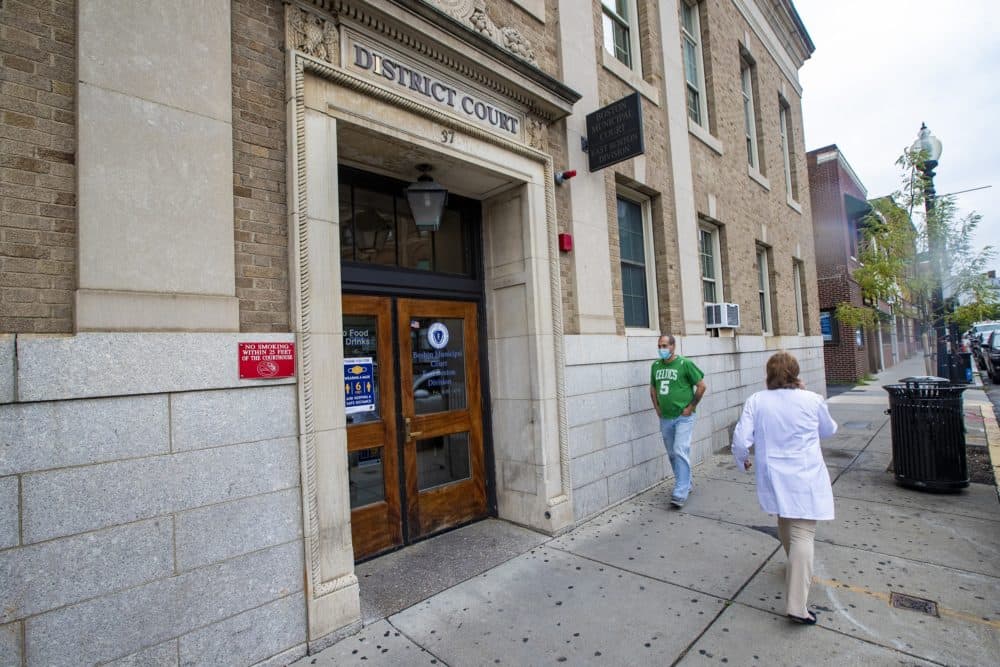Advertisement
Suspects aren't entitled to a lawyer at clerk's hearings in Mass. But having one makes a huge difference

New court data confirms what many lawyers have long suspected: Hiring an attorney can significantly increase your chances of avoiding criminal charges in Massachusetts.
The statistics show defendants with an attorney were 42% more likely to avoid being charged with a crime in clerk magistrate hearings, where clerks decide behind closed doors whether to issue criminal charges in Massachusetts.
But unlike most other criminal proceedings, suspects aren't entitled to a court-appointed lawyer in the clerks' hearings.
Defense attorney Peter Elikann, former chair of the criminal justice section council of the Massachusetts Bar Association, said it's unfair to people who can't afford to hire an attorney on their own.
"I don't think the clerks go out of their way to treat people better simply because they have an attorney," Elikann said. "But an attorney can often just present their side with more experience. They're not emotionally involved. They're not nervous when they get in front of a clerk magistrate."

David Rossman, director of Boston University's Criminal Law Clinical Programs, said he also thought the situation was unfair — but also unlikely to change anytime soon because of the cost involved.
"It's not a real winning campaign slogan for a politician to go to the voters and say, 'Let's let's apportion more of your tax money to lawyers for people who are accused of a crime, as opposed to hiring more teachers or fixing the potholes in the roads,' " Rossman said.
The court data, covering hearings held in 2020, sheds new light on an obscure part of the Massachusetts criminal justice system. Clerks hold thousands of the hearings a year. But most of the hearings are closed. And the documents' aren't usually public unless clerks decide to issue charges. So the numbers provide a window into how the process operates.
The newly released figures shows white defendants were slightly more likely to avoid charges than people of color. And women had a much better chance of avoiding charges than men. Defendants were less likely to be charged if they were either under 20 or over 70 years old.
Advertisement
In addition, the court data shows the odds of getting charged varies significantly from county to county. For instance, in Franklin County, clerks issued charges after 7 in 10 hearings. But in the counties that cover Nantucket and Martha's Vineyard (Dukes), just 3 in 10 hearings results in a criminal complaint. The court did not publish data by individual court house or clerk.
Many clerks and defense attorneys say the hearings provide a way for courts to screen out relatively minor matters or try to find an informal resolution to disputes before they become public criminal cases. They also provide suspects an opportunity to defend themselves before charges are issued, though not everyone takes advantage of the opportunity.
Overall, clerks issued charges in roughly half of the nearly 44,000 cases heard in 2020, the data shows. But clerks issued charges nearly 91% of the time when suspects skipped the hearings in 2020, compared to just 36% when suspects showed up.
___
WBUR's Todd Wallack contributed to this report.
